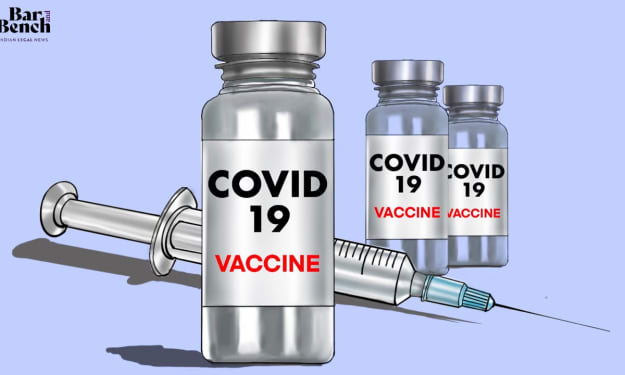Do You Have ADHD?
Signs and Inportance

Knowing that you have Attention Deficit Hyperactivity Disorder (ADHD) is crucial for several reasons. Understanding and recognizing the signs of ADHD can help individuals seek appropriate support and interventions, leading to improved functioning and overall well-being. Here are the signs of ADHD and evidence-based indicators that can help identify its presence:
1. Inattention:
- Difficulty staying focused on tasks or activities for an extended period.
- Frequently making careless mistakes.
- Struggling to organize tasks and prioritize activities.
- Distracted easily by external stimuli.
Evidence: The Diagnostic and Statistical Manual of Mental Disorders, Fifth Edition (DSM-5), published by the American Psychiatric Association, outlines specific criteria for diagnosing ADHD based on persistent patterns of inattention.
2. Hyperactivity:
- Constant restlessness, such as fidgeting or squirming.
- Difficulty remaining seated or staying still when it is expected.
- Excessive talking and interrupting others.
- Engaging in impulsive behaviors without considering consequences.
Evidence: Studies have demonstrated the presence of hyperactivity in individuals with ADHD compared to typically developing individuals. Observations from teachers, parents, or healthcare professionals, along with self-reporting, can provide evidence of hyperactive behaviors.
3. Impulsivity:
- Acting without thinking, often resulting in hasty decision-making.
- Interrupting or intruding on others' conversations or activities.
- Difficulty waiting for one's turn.
- Engaging in risky behaviors or taking impulsive actions.
Evidence: Research studies using behavioral assessments and self-report measures have consistently shown higher levels of impulsivity in individuals with ADHD compared to the general population.
4. Impairments in daily functioning:
- Struggling with time management and meeting deadlines.
- Difficulty maintaining focus on work, school, or other tasks.
- Challenges with organizing and completing projects.
- Problems with interpersonal relationships and social interactions.
Evidence: Longitudinal studies and clinical evaluations have demonstrated that individuals with ADHD often experience impairments in various domains of functioning, including academic, occupational, and social aspects of life.
Obtaining a formal diagnosis from a qualified healthcare professional, such as a psychiatrist or psychologist, is essential for confirming the presence of ADHD. An accurate diagnosis enables individuals to access appropriate treatment options, such as therapy, medication, and behavioral interventions, tailored to their specific needs. Understanding ADHD empowers individuals to develop effective strategies and accommodations to manage their symptoms, leading to improved quality of life and better overall functioning.

Additional details on the importance of knowing you have ADHD and how recognizing the signs can lead to better understanding and management of the condition:
1. Access to Support and Treatment: Recognizing the presence of ADHD allows individuals to seek appropriate support and treatment options. This can include therapy, counseling, and medication, all of which can help manage symptoms and improve daily functioning. By understanding the specific challenges associated with ADHD, individuals can access strategies and interventions that address their unique needs, leading to better outcomes.
2. Self-Awareness and Acceptance: Knowing you have ADHD can provide a sense of self-awareness and validation. It can help individuals understand that their difficulties are not due to personal flaws or lack of effort but rather a neurodevelopmental condition. This knowledge fosters self-acceptance and can alleviate feelings of shame or guilt, allowing individuals to embrace their strengths and work towards self-improvement.
3. Education and Advocacy: Recognizing ADHD empowers individuals to educate themselves and others about the condition. By understanding the neurological underpinnings and associated challenges, individuals can advocate for themselves and others, promoting understanding and empathy within their communities. Increased awareness of ADHD helps reduce stigma and creates an environment that supports individuals with the condition.
4. Improved Coping Strategies: Knowing the signs of ADHD enables individuals to develop effective coping strategies. They can explore techniques such as breaking tasks into smaller, manageable steps, utilizing visual aids, setting reminders, or implementing organizational systems. These strategies can help mitigate challenges related to inattention, impulsivity, and hyperactivity, enhancing productivity and overall functioning.
5. Navigating Relationships and Communication: Understanding ADHD can significantly impact interpersonal relationships. Recognizing the impact of symptoms on communication and behavior allows individuals to communicate their needs effectively and establish support systems within their relationships. It also enables partners, family members, and friends to develop a better understanding of ADHD and provide appropriate support and accommodation.
6. Personal Growth and Goal Setting: Knowing one has ADHD allows for more realistic goal-setting and personal growth. By understanding the challenges associated with the condition, individuals can set achievable targets, make necessary adjustments, and develop strategies to overcome obstacles. This self-awareness fosters resilience, adaptability, and a growth mindset, enabling individuals to thrive despite the unique difficulties they may face.
Remember, obtaining a formal diagnosis and professional guidance is crucial for accurate assessment and appropriate management of ADHD. A healthcare professional can provide personalized recommendations and support, helping individuals navigate their journey with ADHD effectively.







Comments (1)
Saw you asking for people to checkout your stuff, so here I am. These are good summaries about ADHD and programming I see you putting together. Would be fun to hear about your own personal experiences and anything funny or ironic that's happened to you connected to topics like this.